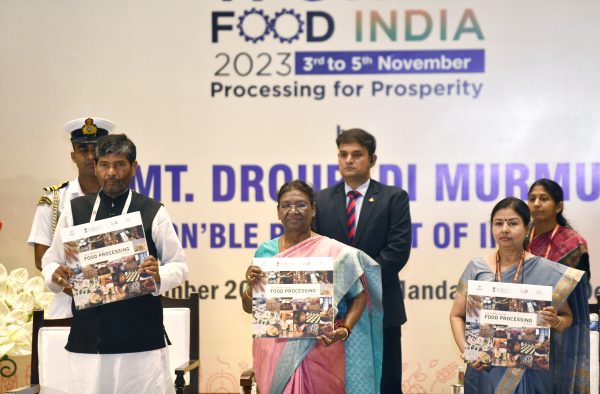The ruling Bhartiya Janata Party (BJP) claims that the name India smacks of colonial legacy since it was given to the country by British colonial rulers. The two names, India and Bharat, are synonymous and have coexisted for decades. Yet, for the BJP, renaming the country Bharat is part of the larger right-wing project of establishing a majoritarian state.
The renaming controversy erupted soon after a bloc of 28 parties decided to form an alliance called the Indian National Developmental Inclusive Alliance (INDIA) that seeks to dislodge the BJP from power. The name of the opposition bloc rattled the ruling dispensation provoking a sharp reaction from it. By calling itself INDIA, the opposition questioned the ruling party’s monopoly over nationalism, which had given the latter a political edge over its opponents. The arrogation of nationalism was an attempt to reclaim a symbolic advantage for the alliance.
This caused considerable unease in ruling circles, starting with the BJP’s defeat in the Karnataka assembly elections in May 2023 at the hands of the Indian National Congress (INC) — a sign that the BJP’s Hindu nationalist politics was not a guaranteed winner, though Prime Minister Narendra Modi is still very popular. But this might not be enough to ensure victory in state or national elections.
In an era of growing majoritarianism and ascending authoritarianism, opportunities for effective opposition have been systematically thwarted. The formation of an opposition alliance in this context is a breakthrough moment for Indian politics. The Hindu right finally faces a challenge both at the ideological and electoral levels, and the political debate is not one-sided anymore.
The meetings of the opposition leaders marked a significant step in forging a relationship between the Congress and regional parties. They have previously struggled to unite due to power struggles, personality clashes, ideological differences and an unwillingness to cede space to other groups in regions where they hold sway.
What united them was the awareness that unless they formed a united front, no single party stood a viable chance of defeating the BJP. The Congress Party’s Bharat Jodo Yatra, Rahul Gandhi’s disqualification from parliament following his conviction in a criminal defamation case filed by a BJP leader, and the unremitting harassment of opposition leaders compelled them to recognise that there is a larger political battle. The fight is to save democracy, as INC President Mallikarjun Kharge put it.
Politics in India has heated up with the BJP and INC going head-to-head in the assembly elections scheduled for November in five states. Congress is leading the charge against the BJP and is also trying to forge opposition unity. But the INC’s preeminent role cannot help but trigger insecurity among its regional allies, who were born out of antagonism to the INC. By not overtly asserting its dominance and stating that it will not claim the post of prime minister, the INC has made it easier for the alliance to take shape as it has laid to rest, at least for now, its claims to the top post.
The formation of the INDIA bloc marks the most significant step taken by the opposition to challenge the dominance of the BJP since 2014. For the first time, the opposition is working towards programmatic unity at the national level. The next election is shaping up into a war of alliances, even though Modi was quick to dismiss it as a ‘hardcore corruption convention’ and added that ‘alliances built on negativity have never won’.
The opposition’s counternarrative has challenged the BJP’s overarching Hindu nationalism pitch. This may not produce a torrent of electoral upsets, but a cumulative process of accretion can change the course of politics. Social justice centred on the demand for a caste census and five economic guarantees offered by the Congress in state elections are key elements of the new opposition matrix. Social justice is not a new idea, but its adoption by the opposition bloc is significant as its encompassing reach grounds their narrative in everyday social and economic realities that affect people’s daily lives.
The opposition faces formidable challenges given that each state has its own electoral imperatives, which makes electoral unity at the state level elusive and very difficult to achieve. This is indicative of the headwinds that the INDIA bloc faces in translating the common interest of its partners into seat sharing and a joint campaign at the state level. The INDIA bloc will primarily focus on the 2024 parliamentary elections. Whether it will yield electoral dividends will depend on the opposition’s ability to reconcile the national ambitions of the bloc with the regional aspirations of parties at the state level, coupled with more informed and imaginative public policies on matters of social justice and welfare.
Even as a united alliance, the bloc will face an uphill battle in taking on the BJP, whose resources and power far exceed those of any other party or alliance. Political antipathy to the BJP might be a glue, but a viable alternative will need a superglue — a policy alternative and vision of nation building that resonates with voters.
A rejuvenated INC, the INDIA bloc, the demand for a caste census, and the decision to boycott partisan and communal television anchors, are building blocks of this political moment. This has provided an opening for the opposition to challenge the hegemony of the Hindu right. The future of India’s constitutional democracy is at stake.
Zoya Hasan is Professor Emerita, Centre for Political Studies, Jawaharlal Nehru University, New Delhi.

